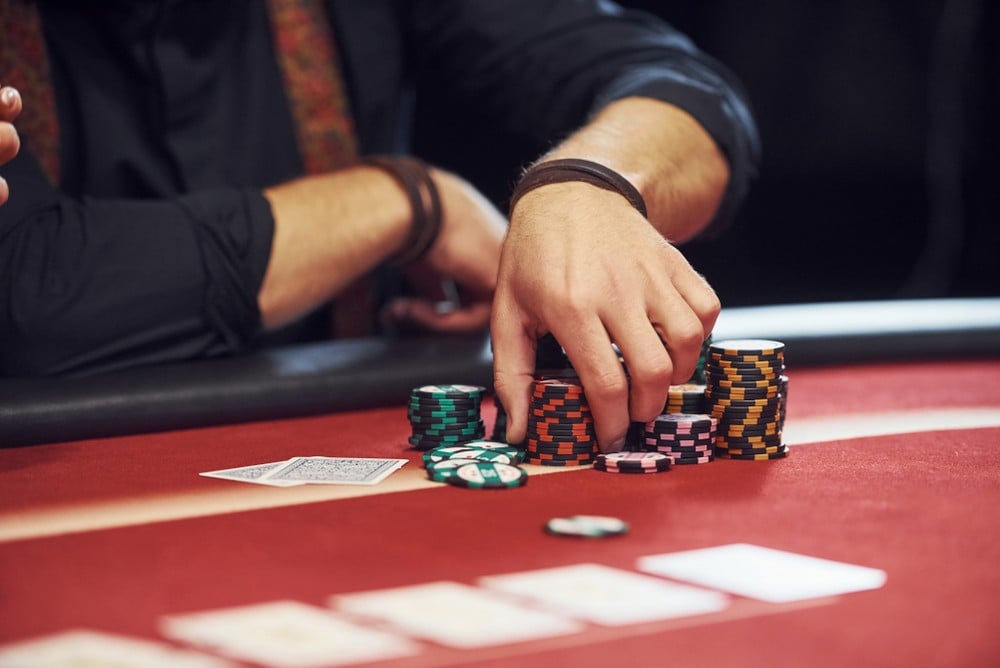How to Overcome Anxiety and Frustration While Playing Poker

Managing Anxiety and Frustration at the Poker Table
What This Guide Covers: Mastering Emotions in Poker
- Spotting Your Emotional Triggers: Learn to recognize what sparks stress and frustration so you can interrupt negative spirals fast.
- Staying Focused Under Pressure: Find out proven techniques for keeping your mind clear and decisions sharp, even in tense moments.
- Quick-Fix Breathing and Relaxation Tips: Calm nerves quickly with effective breathing and relaxation exercises you can do at the table.
- Fostering a Bulletproof Poker Mindset: See how to build a mentality that can absorb setbacks and bounce back stronger.
- Transforming Mistakes Into Growth: Uncover ways to review hands and sessions so you learn, improve, and reduce anxiety over time.
The Crucial Role of Emotional Control in Poker
Poker isn’t just about strategy-it’s a mental endurance test. Every player, from novices to elites, faces moments of self-doubt and frustration when the cards won’t cooperate or losses mount. Without managing these emotions, even a skilled player can veer into costly mistakes, letting negative feelings cloud sound decision-making.
Many players believe emotional control comes naturally with experience, but that’s not the case. Even the most successful professionals experience anxiety and disappointment; the difference is they’ve developed tools to keep those reactions from hijacking their play.

Title Image Credit: Standret/Shutterstock
Emotional resilience defines consistent winners. Instead of chasing losses after bad luck or mentally shutting down during a losing streak, seasoned players pause, reset, and regain focus. The strategies in this article will help you:
- Understand why poker generates anxiety and how to accept it as part of the game
- Recognize triggers and early emotional signs before they escalate to tilt
- Apply practical, science-backed techniques to regain control in real time
- Develop longer-term habits that fortify your mind and prevent future setbacks
Remember: Emotional mastery is built, not inherited. With conscious practice, any player can train this essential poker skill.
Identifying What Sets Off Emotions at the Table
The game has a unique ability to rattle even the calmest player. One unlucky hand, a disrespectful opponent, or a costly miscalculation can suddenly send your mood downhill. Left unchecked, these triggers can lead to mistakes and losses faster than any bad run of cards.
Your first step in mastering tilt and anxiety is simply knowing what situations tend to set you off. Once you’re able to pinpoint personal triggers, you can intervene before those feelings direct your next move.
Typical Emotional Triggers Every Poker Player Faces
- Unlucky Losses (“Bad Beats”): Losing with a strong hand to an unexpected turn hurts-even when you played the odds perfectly.
- Irritating Opponents: Overly aggressive players, slow rollers, or those who deliberately slow down the game can test your patience, overshadowing logical thinking.
- Elimination or Prolonged Losing Sessions: After hours of focus, it stings to walk away empty-handed or eliminated near a tournament cash.
- Personal Mistakes: Self-blame for a misplayed hand can trigger a cycle of harsh self-talk and hesitation.
It’s impossible to avoid these moments entirely; what matters is choosing how to react so you stay in control of your own game.

Title Image Credit: Kaspars Grinvalds/Shutterstock
Responding with Intention: How to Stop Reacting and Start Responding
Everyone at the table will experience setbacks, but your decision after adversity is what shapes your long-term success. In those tense moments, you have two options:
- React Impulsively: Letting frustration take over may lead to chasing losses, making desperate bluffs, or freezing at critical times.
- Respond With Awareness: By acknowledging your emotional state, you can pause, regain your composure, and act with intention-not impulse.
Next time emotion surges, ask yourself:
- What am I feeling (frustration, anxiety, doubt)?
- What triggered this feeling?
- What response aligns best with my goals?
This moment of mindfulness separates players ruled by emotion from those in command of their game.
The Neuroscience Behind Poker Stress and Self-Control
Have you ever felt like your control slips away before you even realize it? There’s a scientific explanation: When under stress, your brain’s “threat detector” (the amygdala) activates a fight-or-flight response, flooding your mind and body with stress hormones that sabotage analytical thinking.
What Happens in the Brain During Poker Tilt?
Your amygdala is programmed to protect-not maximize chip stacks. When a session goes sideways, ancient survival responses hijack logical reasoning, making it easier to tilt or freeze, despite knowing better.
The 90-Second Reset: Break the Emotional Loop Before Tilt Takes Over
According to neuroscientist Dr. Jill Bolte Taylor, the physiological “life” of an emotional response lasts just 90 seconds. Any emotion persisting after that is fueled by repeating negative thoughts. Pausing for a brief moment and focusing on your breathing enables you to disrupt this feedback loop and prevent unnecessary tilt.
Changing Your Inner Dialogue: The Power of Reframing
After interrupting your emotional reaction, change how you interpret what happened. Try these reframing models:
| Unhelpful Thought | Constructive Reframe |
|---|---|
| “Poker is rigged; I always get unlucky.” | “Variance is part of poker. My goal is to keep making good decisions.” |
| “That loss proves I’m a bad player.” | “A single hand doesn’t define me. I’ll review it objectively.” |
| “I must win back what I lost right now.” | “Each session is one part of the bigger picture. Playing well matters most.” |
Practicing positive self-talk after setbacks develops emotional stability that shields your game from frustration and panic.

Title Image Credit: TSViPhoto/Shutterstock
Actionable Techniques to Manage Emotions During Poker Play
Knowledge is the first step, but what do you actually do at the table when stress creeps in? Here are straightforward tactics you can deploy immediately:
1. Regulate Your Breathing (6-2-7 Method)
- Inhale gently through your nose for 6 seconds.
- Hold your breath for 2 seconds.
- Exhale slowly through your mouth for 7 seconds.
- Repeat for three to five cycles to lower your heart rate and reset your focus.
2. The 90-Second Timeout
- After a triggering event, fold the next hand or use down time to breathe deeply and process the emotion.
- Remind yourself, “This will pass; my role is to focus on the next decision.”
3. Ground Yourself in the Present Moment
- Name three objects you can see around the table.
- Notice two clear physical sensations-like your hands on the chips or the feel of your seat.
- Take a deep, intentional breath to anchor your attention in the now.
4. Use Micro-Breaks Strategically
- In cash games, take a short walk or stretch between hands.
- If playing online, step away for a minute or close your eyes for a calming exercise.
- During scheduled tournament breaks, physically move around rather than overanalyze hands or scroll your phone.
These techniques interrupt emotional escalation and help you regain composure faster, so mistakes don’t compound.

Title Image Credit: Bordovski Yauheni/Shutterstock
Building Long-Term Emotional Strength for Poker Success
Quick fixes are invaluable, but true mastery means conditioning your emotional resilience over time just as you do with strategy. Consistency in mental training delivers enduring results.
Pre-Session Mental Routines for Calm and Focus
- Controlled Breathing Practice: Use the 6-2-7 method to prime your body and mind.
- Set an Intention: Clarify your objective (like “make the best decisions possible”), not just short-term financial outcomes.
- Tilt-Reduction Reminders: Acknowledge that setbacks are normal and focus on what you can control.
Reflecting on Sessions: Learn, Don’t Relive
- Wait to review hands and decisions until you’re emotionally settled-often the next day works best.
- Identify and analyze hands that triggered emotional responses-ask, “Was my mindset or my logic at the helm?”
- Note hands you played well-celebrating good decisions strengthens confidence and a positive internal narrative.
This balanced reflection helps you learn from errors without falling into the trap of rumination or negativity, gradually minimizing anxiety in future games.
Harnessing Emotional Mastery as Your Poker Edge
Poker inevitably involves swings and setbacks, but your reaction to those moments can define your results. By learning to spot triggers, apply practical calming techniques, and nurture a resilient mindset for the long term, you gain a powerful competitive advantage other players may lack.
Try introducing just one method from this guide in your next session. With practice, you’ll make better choices, avoid destructive tilt, and consistently perform at your best for every session ahead. When you gain control over your emotions, you take command of your game.
Title Image Credit: Alex Tihonovs/Shutterstock













